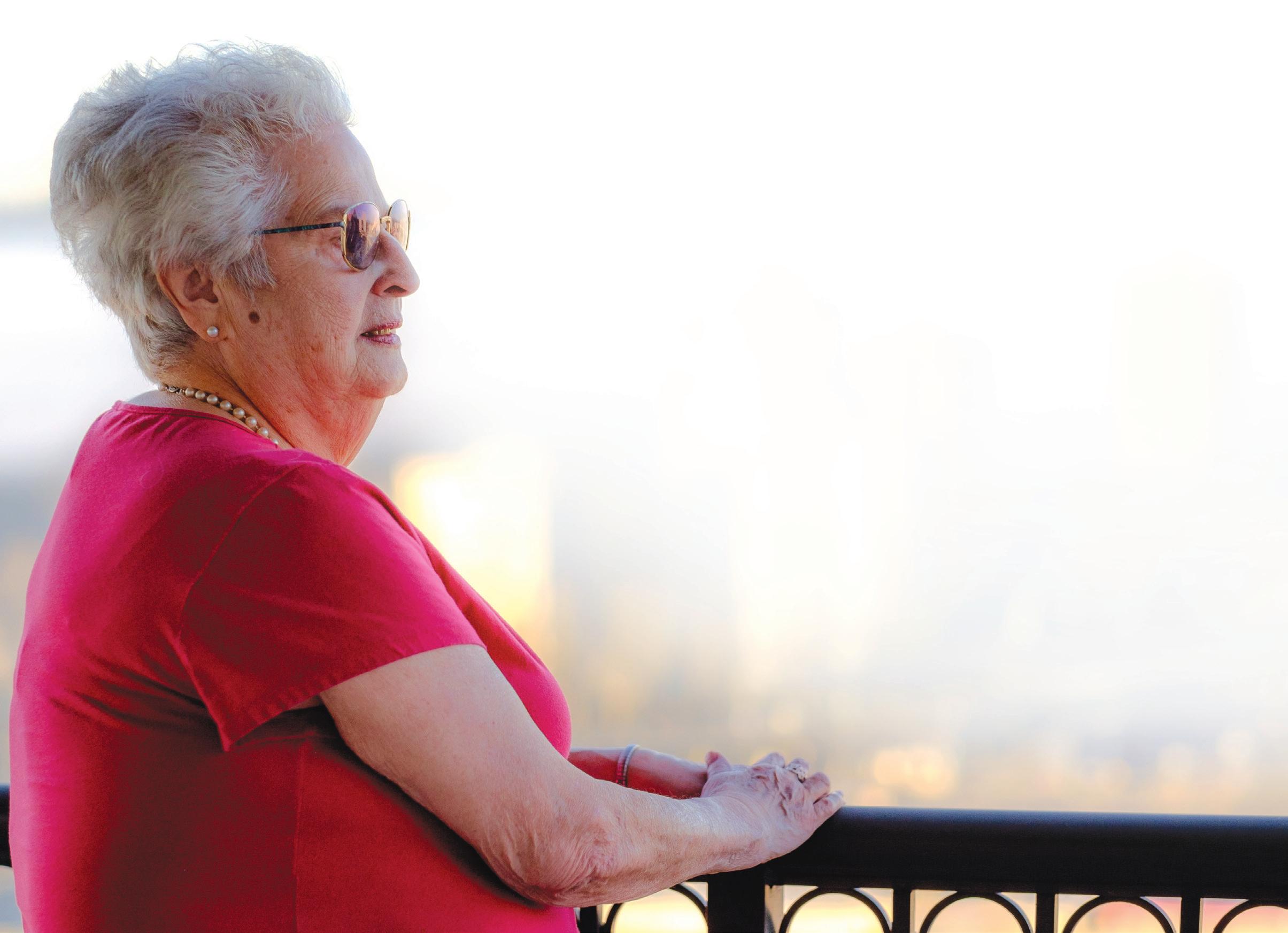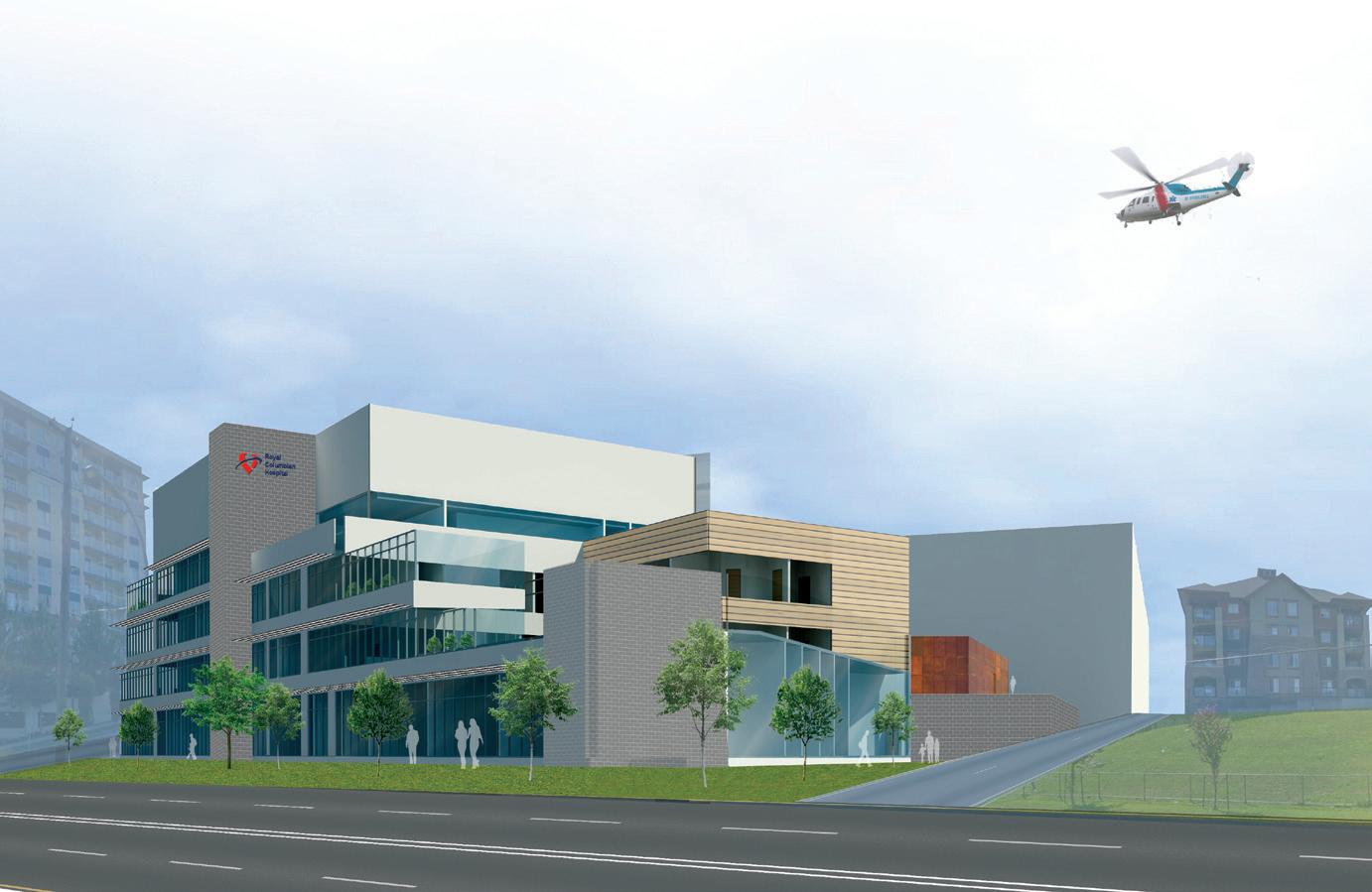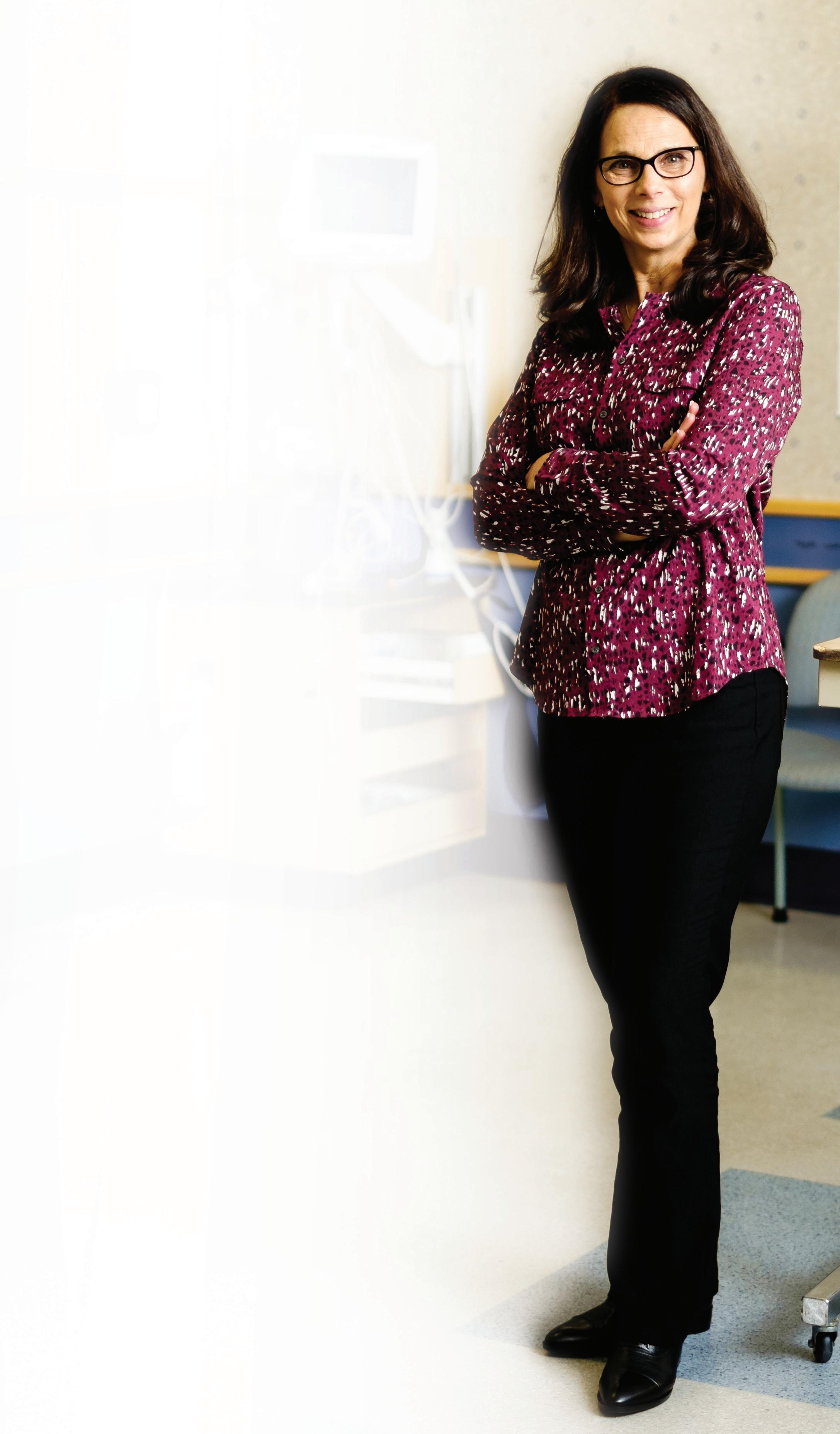
4 minute read
Light at the end of the tunnel
Janice Kirkrod and Joyce KubuHaynes have never met, but they share similar stories. Both in their 70s, they are regularly out and about, visiting with family and friends and generally enjoying life. For
years, both have also been treated for mental illness.
Joyce, who lives in Coquitlam, says it started with
anxiety attacks when she was 30. “They
were bad,” she remembers. “I went to
see my doctor, and he said I should be in the hospital.” She would eventually be diagnosed with schizophrenia. After her initial stay in hospital, Joyce managed for years with the help of her medications. But she was again hospitalized in 2011 after her husband’s death. Her prescription was changed, and then increased three years later. “My podiatrist had come to my home, and she realized there was something that wasn’t right,” says Joyce about a setback that resulted in a month-long stay in hospital in 2014.
For her part, Janice suffered from severe depression in her mid-40s. She had little energy and cried often. “I’ve been through quite a few medical things in my life, like cancer,” she says. “But depression is the worst thing you have to go through. It’s just simply horrible.” Medications did not seem to work for her, and the Surrey resident credits electroconvulsive therapy (ECT) for her recovery. Janice underwent several ECT treatments in the 1980s and then again in the 90s when her symptoms returned. “I’m not saying those ECT treatments are a picnic,” says Janice. “But yes, I did get better.” Over the years, both Janice and Joyce have come under the care of Dr. Hem Phaterpekar, a geriatric psychiatrist at Royal Columbian Hospital. He says setbacks like the ones experienced by Joyce and Janice are to be expected when managing significant psychiatric illnesses. “These are no different from diabetes or heart problems or lung problems, “ With my close friends, it’s just a part of my life. I like my life right now. ” -Janice Kirkrod
which are chronic issues,” says Dr. Phaterpekar. “But we can actually decrease the amount of setbacks. We can also make sure the intensity of the setback is a lot less. We can also respond quickly, and we can also try and prevent these setbacks.”
Redevelopment Patients who need to be admitted to Royal Columbian for mental health concerns are currently served by the hospital’s Sherbrooke Centre, an aging building that opened more than 50 years ago as a nurses’ residence. On May 27th, 2015, the province’s health minister announced approval of a plan to replace the Sherbrooke Centre during the fi rst phase of a larger hospital redevelopment. Work is now underway to open a new 75-bed Mental Health and Substance Use Wellness Centre at Royal Columbian in 2019. It can’t come soon enough for those who work there, like head of psychiatry Dr. Anson Koo. “The Sherbrooke Centre has physical limitations,” he says. “The population has ballooned since the inpatient unit opened in the early 80s.” At four fl oors, the new centre will off er two and a half times as many beds, including 45 adult inpatient beds, 10 high acuity beds, and, in a fi rst for Fraser Health, a 20-bed Older Adult Psychiatric Unit. “I think in many ways, it’s going to advance mental health care for our seniors population throughout our health region,” says Dr. Koo. “We realize our seniors have special requirements. Many of them are frailer physically. Many of them are at higher risk of falls, fractures and have unique rehabilitation requirements.” Outpatient care will also benefi t from the redevelopment. A number of new or expanded clinics will assess, treat and support people
with complex mental health and substance issues. And the new facility will serve as the hub for Fraser Health’s psychiatry and mental health education and training through the University of British Columbia’s Faculty of Medicine. It will also provide research opportunities to identify best practices, infl uence policies and introduce prevention measures. “This will greatly enhance mental health care in our health authority and help people with mental illness who are living in our community,” says Dr. Koo. Royal Columbian Hospital Foundation has committed to raising $9.1 million for the project. Support network Janice and Joyce both say their children have remarked how well they are doing now. The two women have found support among their closest friends and relatives. “Some of them left me and didn’t understand,” notes Joyce. “Then I have friends that are really with me, and one of my girlfriends said she gave me credit for doing something about it. That made me feel good.” “With my close friends, it’s just a part of my life,” says Janice. “I like my life right now.” nEW Mental Health and Substance Use Wellness Centre. Potential concept only.



JOYCE KUBU-HAYnES enjoys independent living as she manages her mental illness.










